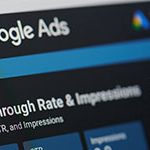Businesses constantly look for ways to improve their online presence and drive more efficient results from their advertising efforts.
PPC campaigns are a crucial part of this digital strategy, demanding meticulous planning, constant monitoring, and timely adjustments to ensure maximum return on investment. However, PPC management can get very complex, even for the most seasoned marketers.
This is where AI software steps in as a vital resource, simplifying the complications of PPC management. AI PPC tools help research keywords, optimize bids, draft ad copies, predict future ad trends, and analyze landing pages and campaign data.
This article shares four reasons to leave PPC optimization to AI software.
Why Should You Leave PPC Optimization to AI – 4 Best Reasons

Saves Time with Automated Campaign Management
One of the most significant advantages of using AI for PPC optimization is the time it saves. Manual PPC campaign management involves countless hours spent on keyword research, bid adjustments, and performance analysis.
AI automates these time-consuming tasks, allowing marketers to focus on strategy and creative content. For instance, AI tools can monitor and adjust bids across thousands of keywords when it takes a human to analyze just a few.
This automation extends beyond simple tasks, handling complex analyses to predict and react to market changes in real time, which is impossible to do manually on a large scale.
Reduces Overall Advertising Costs
AI reduces the need for manual labor, cutting down operational costs for businesses. AI’s ability to make data-driven decisions quickly helps minimize wasted ad spend by pausing underperforming ads or adjusting bids to ensure the best possible ROI.
An AI tool might identify that certain keywords are driving clicks but not conversions and automatically lower bids for those keywords, thereby reducing costs without sacrificing results.
Adapts in Real-Time to Changing Market Conditions
The digital marketing landscape is dynamic, with consumer preferences and online behaviors changing rapidly. AI automates this by processing vast amounts of data in real-time, enabling it to adapt quickly to these changes. This AI ability ensures that PPC campaigns remain relevant and effective, even as market conditions evolve.
For example, a Meta advertising software uses AI to instantly adjust your campaign’s keywords and bids to maintain competitiveness. This real-time adaptation is something that manual campaign management struggles to achieve, often resulting in missed opportunities.
Improves Decision Making with Data Analysis
AI PPC tools quickly analyze data, something that’s incredibly time-consuming for humans. These tools look into how well certain keywords are performing, identify irrelevant search terms that should be added to your negative keywords list, and assess the effectiveness of different versions of your ad copy.
They also track which demographics are most responsive to your ads and determine the optimal times for ad placement.
By handling these analyses, AI enables businesses to make informed decisions more quickly, ensuring that PPC campaigns are always fine-tuned for the best possible performance.

Key Takeaways
Managing PPC campaigns is one tough nut to crack in digital marketing. Here’s why using AI software is a smart move for PPC optimization:
- It saves you time: AI does the heavy lifting, like choosing keywords and setting bids, so you can focus on the big picture.
- It cuts down on costs: By making smart choices on where your money goes, AI helps you spend less but still get great results.
- It keeps up with changes: The online market evolves fast. AI keeps your ads up-to-date, so you’re always in the game.
- It makes smart decisions: With AI, you make choices based on solid data, not just gut feelings. This means better ads that hit the mark.
Why is AI software better at PPC optimization than manual methods?
AI software surpasses manual methods in PPC optimization due to its unparalleled ability to process and analyze massive amounts of data in real-time. Unlike humans, AI can work around the clock without fatigue, continuously monitoring and adjusting campaigns to ensure optimal performance. It can instantly respond to changes in consumer behavior, search trends, and competitive landscapes, making data-driven decisions that are beyond the scope and speed of manual handling.
How does AI improve efficiency and save time in PPC management?
AI improves efficiency and saves time in PPC management by automating routine tasks such as bid adjustments, keyword management, and ad placements. This automation frees up marketers to focus on strategic and creative aspects of campaigns. AI’s predictive analytics can forecast campaign performance, allowing for proactive adjustments before potential issues impact the budget or ROI. By handling the heavy lifting, AI ensures campaigns are always fine-tuned and performing at their best, without the need for constant human intervention.
What kind of data insights can AI provide that might be missed otherwise?
AI can uncover deep insights by analyzing data patterns that might be too complex or subtle for human detection. It can identify correlations between seemingly unrelated factors, such as the impact of weather patterns on search behavior or the influence of global events on local buying trends. AI can also predict customer behavior, identify high-value audience segments, and reveal the true attribution of conversions across multiple channels—insights that are critical for refining targeting strategies and maximizing campaign effectiveness.
How does AI contribute to a higher ROI in PPC campaigns?
AI contributes to a higher ROI in PPC campaigns by ensuring that every dollar spent is optimized for maximum impact. Through advanced algorithms, AI can pinpoint the most effective keywords, target the most responsive audience segments, and determine the optimal times and platforms for ad placements. By continuously learning and adapting, AI ensures that campaigns are always aligned with the highest potential for conversions, leading to more efficient use of the advertising budget and a higher return on investment.
Can AI adapt to market changes more effectively than traditional methods?
Yes, AI can adapt to market changes more effectively than traditional methods due to its real-time processing capabilities and predictive analytics. It can detect emerging trends, shifts in consumer sentiment, and changes in competitor strategies almost instantly. This rapid response capability allows AI-driven PPC campaigns to remain relevant and effective, even in volatile market conditions. By continuously analyzing new data and adjusting strategies accordingly, AI ensures that campaigns stay ahead of the curve, capitalizing on opportunities and mitigating risks as they arise.
Conclusion
Embracing AI for PPC optimization is not about replacing the human touch; it’s about enhancing it. With AI, you can focus on strategy, creativity, and the bigger picture while letting AI handle the grunt work. The future of PPC is here, and it’s powered by AI.











